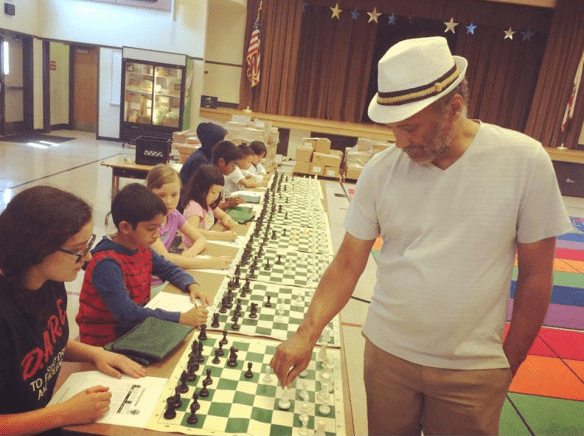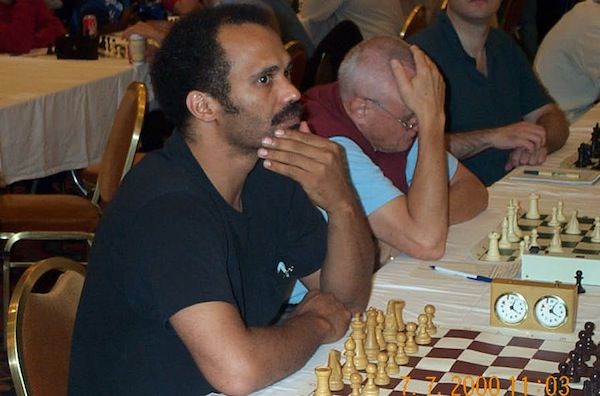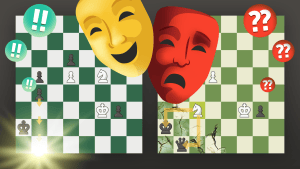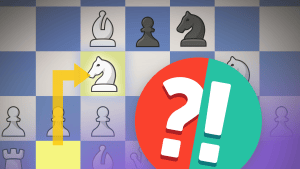
The Chess Heritage Of Emory Tate
This is the last installment of my tribute to IM Emory Tate. The first two parts can be found here and here.
There are definitely people out there who knew Emory much better than me, so they could disagree, but I always had an impression that his life was fully devoted to chess, as he was ready to talk about it 24/7.
It is a well known fact that more than anything else, Tate loved to show his games that featured fearsome attacks and beautiful combinations. Most of them looked to me like some strange kind of chess surrealism.
Have you ever seen one of Salvador Dali's most famous paintings, "Dream Caused by the Flight of a Bee Around a Pomegranate a Second Before Awakening"?

Emory Tate managed to create a chess version of this painting. Enjoy!
He also liked to share his wild opening ideas. All of them were either bizarre or simply crazy. While I knew that I wouldn't be able to use any of his opening ideas even in my weirdest dreams, I still liked to analyze with him since it was an endless kaleidoscope of unusual positions and odd tactics. One of his ideas was so attractive that I decided to give it a try at some point even if just in a blitz game.
I am talking about the so-called Tate variation of the Alekhine defense:
The earliest rook lift I have ever seen was so out of this world that I couldn't resist and tried it in numerous blitz games on the Internet. We analyzed one of them in this article.
As I already mentioned in the first part of this series, sometimes a beautiful combination meant more for Tate than the game or even the whole tournament. When Emory was able to execute such a combination he was genuinely happy, just like a kid who got a dream toy as his Christmas present.
At such moments he felt like he was the best chess player in the whole world, and the following famous clip from the "Titanic" depicts his mood very well.
One of the funniest chess episodes in my life happened at exactly such a moment. It took place in a huge hall of the Adams Mark hotel in Philadelphia, which hosted the World Open for about 20 years. Emory just finished his game with one of his famous attacks and he was telling me now how brilliant his play was.
I was a silent listener and all I was doing is just nodding in an agreement. Well, you wouldn't interrupt an actor who plays Hamlet and cries "O, answer me!" would you?
At some point, with adrenaline still pumping, he asked me: "What do you think Gregory, maybe I should go to the "First Saturday" tournament in Hungary and get my GM norm? Then maybe I can even challenge Kasparov for a match?"
Since by that time I knew Emory pretty well, the question didn't surprise me at all and I was contemplating what to answer. But a young chess player from Russia who was standing next to us waiting for the next round's pairing didn't know Emory Tate at all.

Photo courtesy Daaim Shabazz, The Chess Drum.
So, look at the situation through the eyes of this kid. Some random guy is saying that he is going to get a GM title and then challenge Kasparov. And all of this was done with a totally straight face!
The young Russian player started laughing, which was immediately noted by Emory. Here I need to mention that even though Tate knew the Russian language pretty well, we always used English when we spoke.
Emory turns to the poor kid and tells him in a perfect Russian: "Why are you laughing? Look at him (here Tate pointed at me), he is a grandmaster, he knows me well and he is not laughing! And you don't know me, so why are you laughing?"
The kid's look at this point was priceless. Just imagine what was going on in his head. First a strange guy standing in front of him was going to go to Hungary to get a GM title and challenge Kasparov, and then the same guy, who doesn't look Russian at all, speaks to him in perfect Russian!
At this point I couldn't contain myself anymore and started laughing!
In conclusion, let me offer you some positions from Emory Tate's games. Try to find a winning continuation in each of them.

